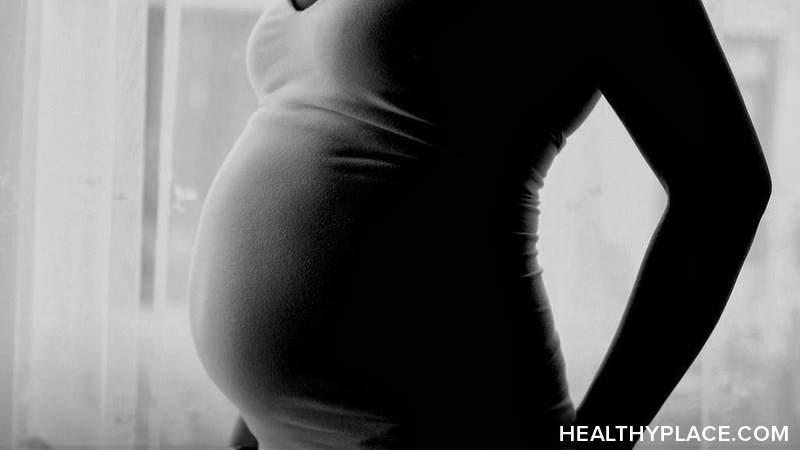Alternative Mental Health Treatments During Pregnancy

Is it safe and effective to switch from a psychiatric medication to an alternative treatment while trying to conceive or during pregnancy?
Safety of Herbs, Supplements for Mental Health Conditions Questionable During Pregnancy
A common scenario seen on our consultation service is a woman with an anxiety disorder or mood disorder who is stabilized on a drug and who wants to switch to an alternative medicine during pregnancy or while trying to conceive. The compounds people ask the most about are St. John's wort, SAMe (S-adenosyl-L-methionine), and omega-3 fatty acids. We also get questions about the use of kava supplements as an alternative treatment for anxiety.
Many women make the intuitive leap that some of these widely used complementary or alternative therapies represent a more "natural" and therefore safer alternative to a more standard pharmacologic treatment during pregnancy or while they are trying to conceive. The problem is that we have very little, if any, reproductive safety data on these natural compounds. Many of these products do not contain just the specific herbal compound, but fillers and other components used for compounding, about which we know very little.
Moreover, efficacy data for many of the herbals are limited. For example, there is still an ongoing debate about the efficacy of St. John's wort for depression. Although there are no data indicating that it's dangerous, not much is known about the reproductive safety of hypericum, its active ingredient.
While omega-3 fatty acids are not presumed to be teratogenic, the data supporting their efficacy in patients with bipolar disorder have been based primarily on adjunctive use with other mood-stabilizing medications. There are very little data on monotherapy; even the experience with adjunctive therapy was based on an extremely small sample of people.
Based on these uncertainties, an arbitrary switch to an alternative treatment may represent a failed risk-benefit decision, exposing a pregnant woman to both an unknown reproductive safety risk and an increased risk for relapse. A woman, therefore, will not be in a much better position regarding safety with one of these products than with a drug for which there are only limited reproductive safety data but which is known to be effective.
The growing array of newer antidepressants and anticonvulsants increases the possibility that more women will be successfully treated, although not much is yet known about their reproductive safety. More is known about the older medications, like lithium and divalproex sodium (Depakote), which are known to be teratogenic.
Some antidepressants, including fluoxetine (Prozac) and the tricyclics, are not teratogenic. There are neurobehavioral data following children through age 7 years showing no adverse impact of in utero exposure to these agents, but there is still more to be learned about their long-term neurobehavioral effects.
My biggest concern is the risk of relapse in women who switch to an alternative treatment under the presumption that it will invariably work. What has become increasingly clear, however, is that across psychiatric disorders pregnancy is not protective against relapses or onset of new illness, so more patients are being treated with pharmacologic therapies.
A common scenario we see is a woman who has had multiple episodes of major depression and has been treated with multiple antidepressants. She has been stabilized on a selective serotonin reuptake inhibitor like fluoxetine, for which there is a lot of reproductive safety information, or a medicine like mirtazapine, nefazodone, or bupropion, for which we have very little reproductive safety information. This is the type of patient who is at high risk of relapse if she stops taking medication, and many of these patients do relapse.
An untreated mood disorder during pregnancy is not something to discount. There is a growing literature illustrating the impact of untreated depression during pregnancy, including adverse outcomes on perinatal well-being in terms of Apgar scores, birth weight, and other basic neonatal outcomes. The most dramatic example is with bipolar patients who, without proper treatment, may relapse into severe recurrent mania or depression, placing the fetus and mother at increased risk.
As a clinician and a researcher, I appreciate the efforts to identify safe treatments during pregnancy. Unfortunately, the science to support the belief that natural treatments are safer, held by so many women (and some clinicians) who are concerned about prenatal exposure to any psychiatric medicines, is not substantiated.
While we have pregnancy registries for some psychiatric medications and there are animal data on these medications, we may never have such reproductive safety data on some of the naturally occurring compounds, because to date they remain unregulated.
Dr. Lee Cohen is a psychiatrist and director of the perinatal psychiatry program at Massachusetts General Hospital, Boston. He is a consultant for and has received research support from manufacturers of several SSRIs. He is also a consultant to Astra Zeneca, Lilly and Jannsen - manufacturers of atypical antipsychotics. He originally wrote this article for Ob-gyn News.
APA Reference
Staff, H.
(2009, January 6). Alternative Mental Health Treatments During Pregnancy, HealthyPlace. Retrieved
on 2026, January 29 from https://www.healthyplace.com/other-info/mental-illness-overview/alternative-mental-health-treatments-during-pregnancy



